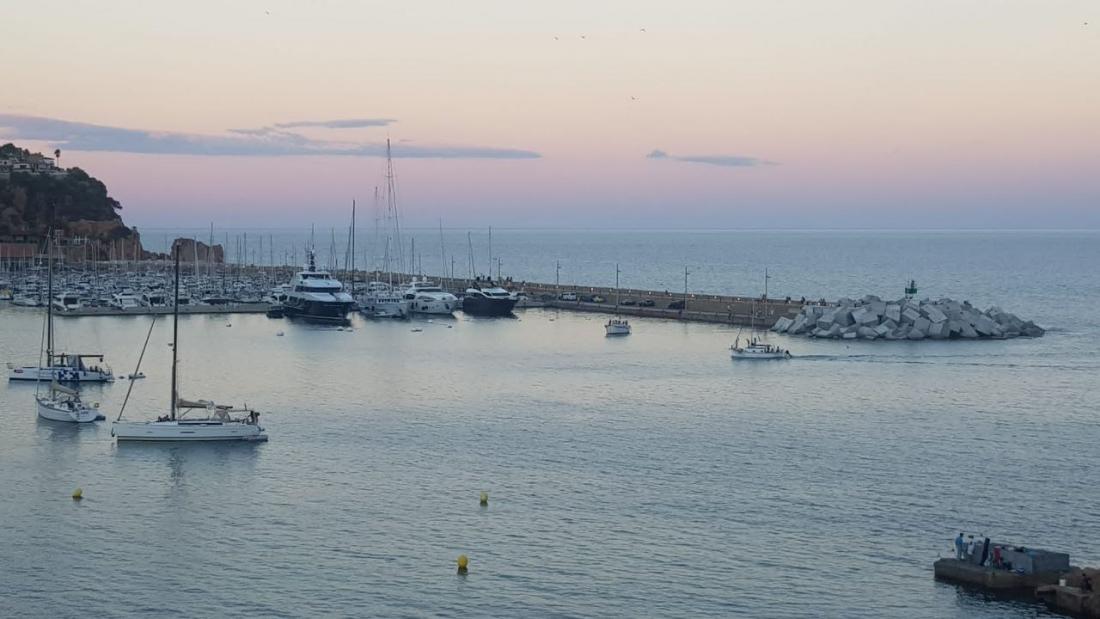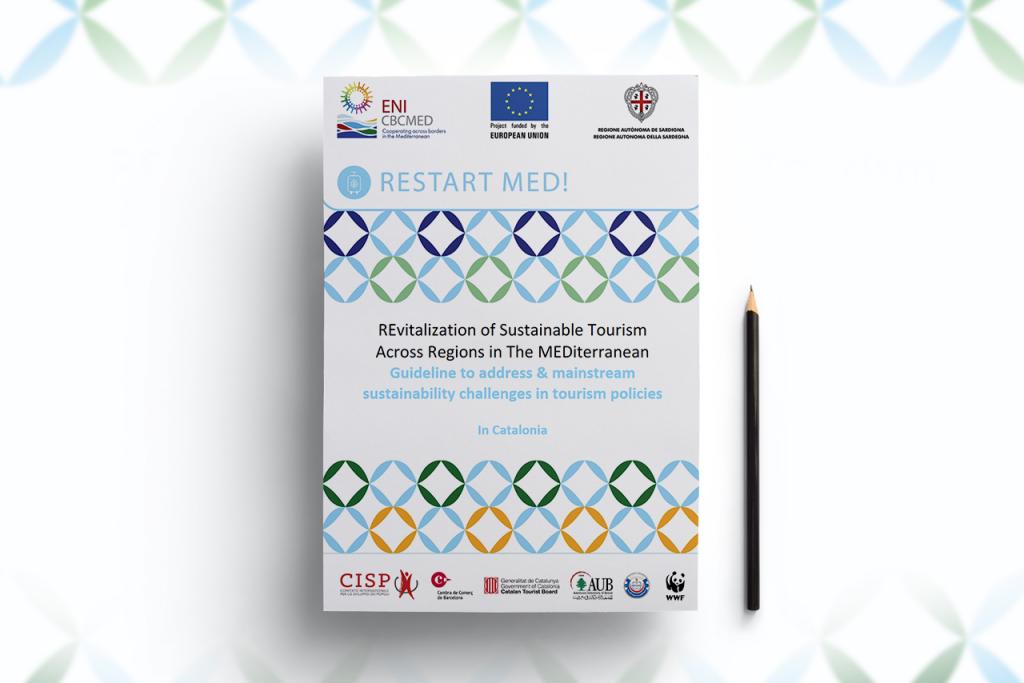RESTART MED! offers a guideline to assess and monitor sustainability in Catalonia's tourism policies

Within the Restart Med! project, partner Catalan Tourist Board has developed, with the key work of Beta Technological Centre, a guideline to evaluate and monitor sustainability in tourism policies in Catalonia. This document contextualises the most relevant and recurrent European, Spanish and Catalan policies for achieving ecological and sustainable tourism. The guideline tools can also be used by other countries in the Mediterranean who can take it as a starting point to analyse their own policies.
Under the title of Revitalization of Sustainable Tourism Across Regions in The MEDiterranean; Guideline to address & mainstream sustainability challenges in tourism policies in Catalonia, this guideline organises the relevant policy issues identified through a classification formed by four groups: the transversal Governance one and the three sustainability ones (Environmental, Socio-Cultural, Economical).

Analysis of Catalan tourism policies
In order to show a real picture of sustainability in the present Catalan tourism policies, the guideline carries out a Strength, Weaknesses, Opportunities and Threats (SWOT) analysis and conducts a Correct, Adapt, Maintain and Explore (CAME) study of key Catalan tourism territorial strategies and plans.
In this regard, the document assesses in detail the current policy landscape on sustainability in the tourism sector and provides a reliable model of analysis for other territories and regions. This analysis also serves to create a methodology to understand sustainability in tourism policies.
How to easily evaluate sustainability improvements in tourism policies
The complexity of today's policy system calls for methodologies to assess existing policies on sustainability in tourism in a practical and easy way. Therefore, the guideline offers two powerful tools. On the one hand, a checklist for policy makers is provided to verify the extent to which sustainability is being implemented in tourism policies. The aim is not only to provide a measuring tool, but also to help improve tourism polices by indicating what parameters they should include in order to take into account sustainability.On the other hand, RESTART MED! presents a list of 45 indicators that examine and monitor the impact of implemented sustainable tourism policies. Finally, the guideline concludes with an overview of the recommended pathway for implementing sustainability in binding and non-binding policies.
The RESTART MED! checklist and indicators aim to support the evaluation of tourism policies and their implementation
Based on the work done by the Beta Technological Centre, the Catalan Tourist Board and NAL3 Comunicació, edited the two tools created in the guideline to offer it as a separate document. In this regard, policymakers and experts implementing sustainability policies can find three types of documents that contain similar information and that are put in place for so that they are downloaded according to the expert’s needs (click on each title to download):
· Checklist: this document contains the checklist to analyse sustainability in tourism policies. Having a checklist is the first step in analysing policies and ensuring that they include the necessary criteria to address sustainability challenges. The checklist includes "Yes", "In Progress" and "No" parameters
· Checklist and Indicators (summarised): this document includes the checklist to analyse sustainability in tourism policies and a table with indicators to analyse their implementation. That is, per each category included in the policy, experts implementing the policy have a set of indicators that can help them monitor the implementation. Each expert or team of experts should adapt the list.
· Checklist and Indicators (extended): this version includes the checklist to analyse sustainability in tourism policies and a list of indicators to analyse the implementation of a policy. It replaces the summary table for a detailed explanation per indicator. There are two types of indicators. A “type one” indicator is assessed on a more basic level with a Yes/No reference scale. A “type two” has a more specific reference scale to measure the performance in detail. More indicators may be added as needed by policymakers or analysts.
The guideline and resources have been created to support the assessment of sustainability in binding and non-binding policies and their implementation. The tools created are intended to be easy and have been created for specific tourism action plans at regional (Catalan) and local (county and municipal) level. The tools are nonetheless easily be extrapolated to other territories around the Mediterranean.
Follow us for more on Twitter and Instagram!









